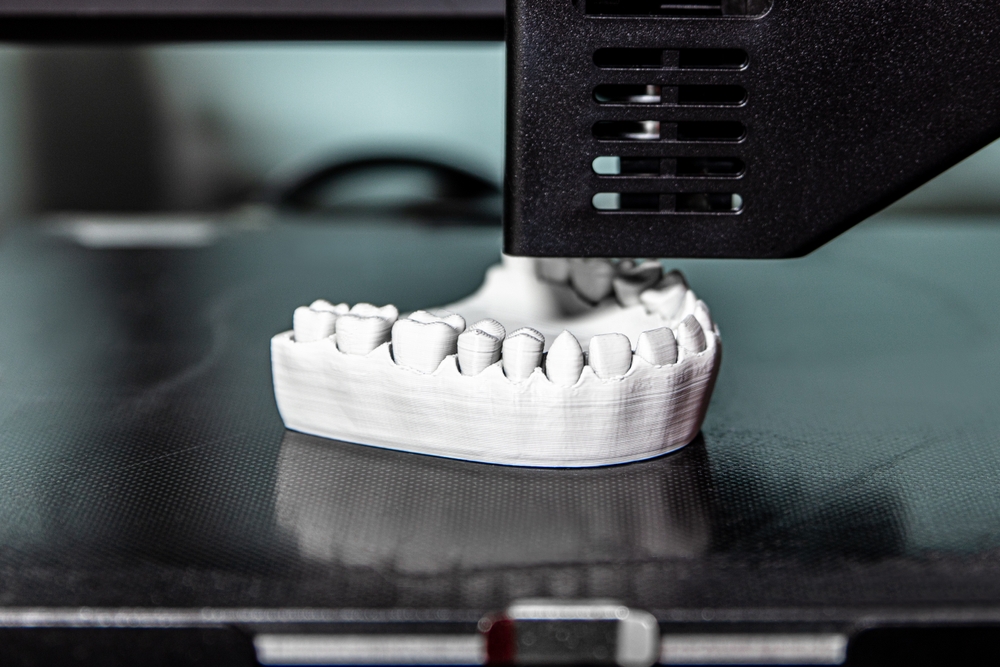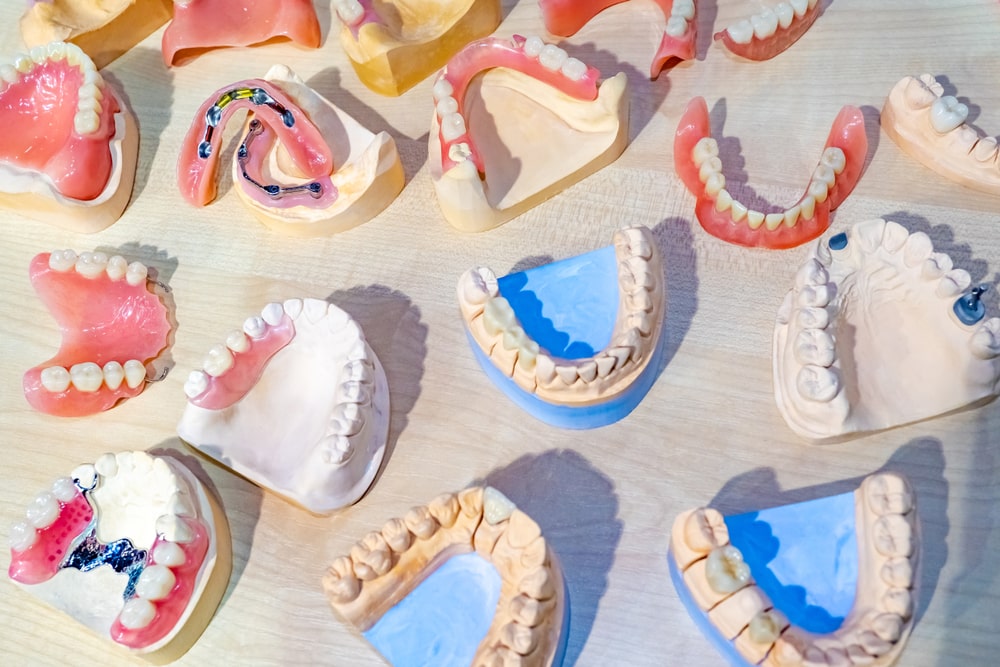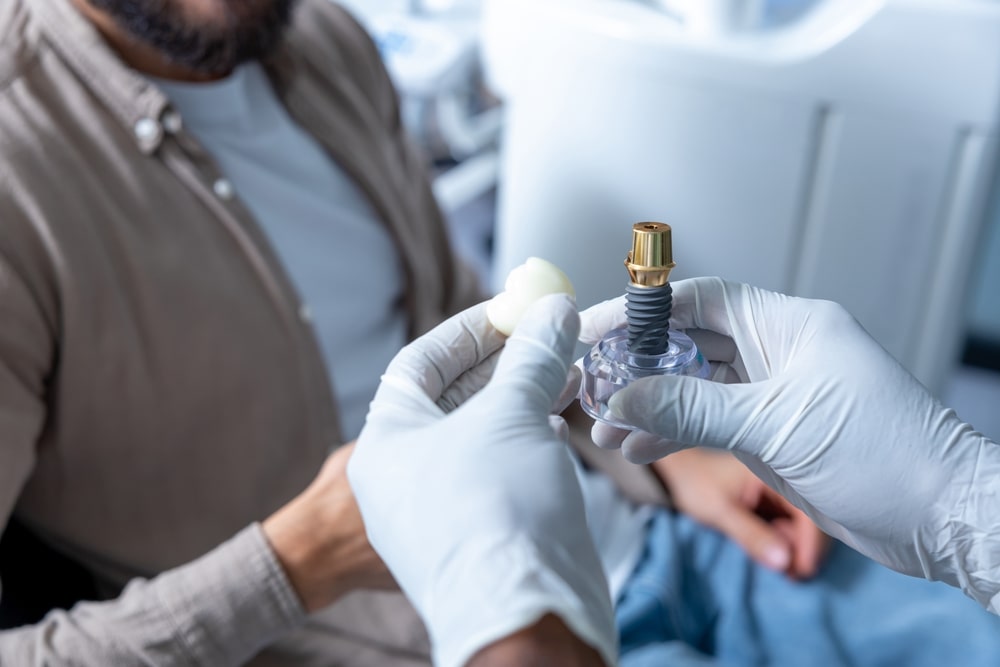In today’s dental landscape, patients expect more from their dentures than ever before. This includes greater comfort, a natural appearance, and long-lasting durability. To meet these demands, dental labs are turning to advanced polymers, a new generation of materials that offer superior strength, flexibility, and biocompatibility compared to traditional acrylics. These innovations are not only enhancing the quality and longevity of denture prosthetics but are also improving patient satisfaction across the board. In this blog, we’ll explore how advanced polymers are transforming denture fabrication and why they represent a major leap forward for both dental professionals and the patients they serve.
In This Blog:
- Understanding Traditional Denture Materials
- What Are Advanced Polymers?
- Key Benefits of Advanced Polymers in Denture Fabrication
- Applications in Various Types of Dentures
- Integration with Digital Denture Workflows
Understanding Traditional Denture Materials
For decades, polymethyl methacrylate (PMMA) acrylic resin has been the standard material for denture bases. While PMMA offers ease of fabrication and acceptable aesthetics, it has significant limitations, particularly in terms of strength and resistance to fracture. Over time, wear and tear can lead to cracks, discoloration, and even complete breakage, often requiring frequent repairs or replacement. These limitations have driven the search for stronger, more resilient materials to meet the evolving needs of denture patients.
What Are Advanced Polymers?
Advanced polymers are engineered materials that offer enhanced mechanical and physical properties compared to conventional denture resins. Examples include high-impact PMMA, polyether ether ketone (PEEK), and nylon-based thermoplastics. These materials are designed to offer greater flexibility, strength, and biocompatibility while also improving the overall performance and appearance of dentures.
Unlike traditional PMMA, which can be brittle and prone to fracture under stress, advanced polymers offer a superior combination of toughness and elasticity. Their adaptability and high performance make them ideal for use in demanding dental applications, particularly in full and partial dentures that must withstand significant bite forces and daily wear.
Key Benefits of Advanced Polymers in Denture Fabrication
Improved Fracture Resistance
Advanced polymers are engineered to absorb and distribute stress more effectively than traditional materials. This reduces the risk of fractures from accidental drops or functional stresses during chewing.
Enhanced Flexural Strength and Durability
These materials can withstand bending forces without cracking or losing shape, which is especially beneficial for patients with strong bite forces or irregular jaw movements.
Greater Resistance to Wear and Tear
Advanced polymers hold up better against the constant friction and pressure experienced during daily use. This leads to longer-lasting dentures with minimal maintenance needs.
Lighter Weight with Better Comfort
Despite their strength, many advanced polymers are lighter than traditional acrylics. This translates to improved patient comfort, especially for full upper or lower dentures.
Biocompatibility and Reduced Risk of Allergic Reactions
Polymers such as PEEK and certain nylon-based resins are hypoallergenic and free from residual monomers that can cause irritation or allergic reactions in sensitive patients.
Aesthetic Advantages
Advanced polymers often feature better translucency and color stability, providing a more natural look that lasts longer without significant staining or discoloration.
Applications in Various Types of Dentures
Advanced polymers are versatile and can be used across a range of denture types:
- Full Dentures: High-impact PMMA offers improved durability and esthetics, making it ideal for complete arch restorations.
- Partial Dentures: Flexible nylon-based resins are often used for partials, offering comfort, retention, and a metal-free appearance.
- Implant-Supported Prostheses: Materials like PEEK are increasingly used in frameworks and hybrid prosthetics due to their strength-to-weight ratio and shock-absorbing properties.
This adaptability makes advanced polymers a valuable option for dental labs seeking to provide personalized solutions for a variety of clinical scenarios.
Integration with Digital Denture Workflows
As dental technology advances, digital workflows are becoming standard practice in many modern labs. Advanced polymers are highly compatible with these systems, including CAD/CAM milling and 3D printing. Their uniform composition allows for precise shaping and smoother surfaces, reducing the need for extensive finishing.
Digital integration also ensures consistency in denture quality and fit, while reducing production time and material waste. Labs can now fabricate high-performance dentures with improved accuracy and faster turnaround, enhancing both lab efficiency and patient outcomes.
Conclusion
The incorporation of advanced polymers into digital denture fabrication is revolutionizing how dental labs approach strength, durability, and patient comfort. These materials not only address the shortcomings of traditional acrylics but also elevate the standard of care through superior performance and aesthetics. As digital workflows continue to evolve, advanced polymers are positioned to play a central role in the future of denture manufacturing, offering patients a better fit, longer-lasting results, and a renewed confidence in their smile.
Looking to upgrade your denture offerings? Contact Pan-Am Dental Lab today to learn how cutting-edge materials like advanced polymers can help you deliver dentures that exceed expectations in both strength and longevity.




